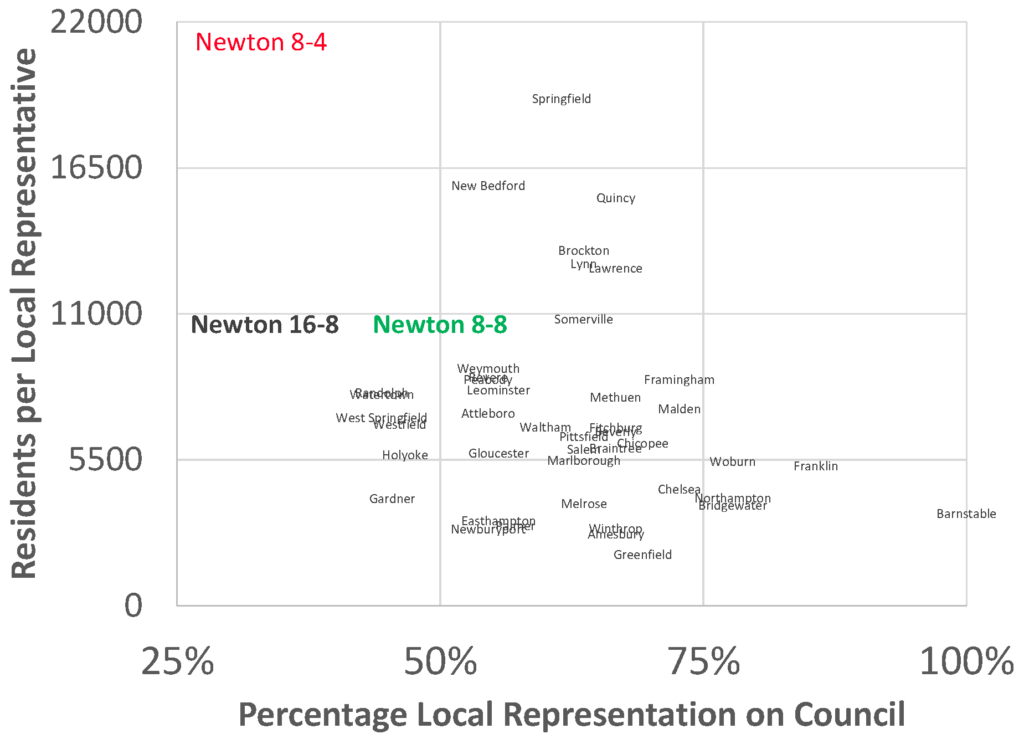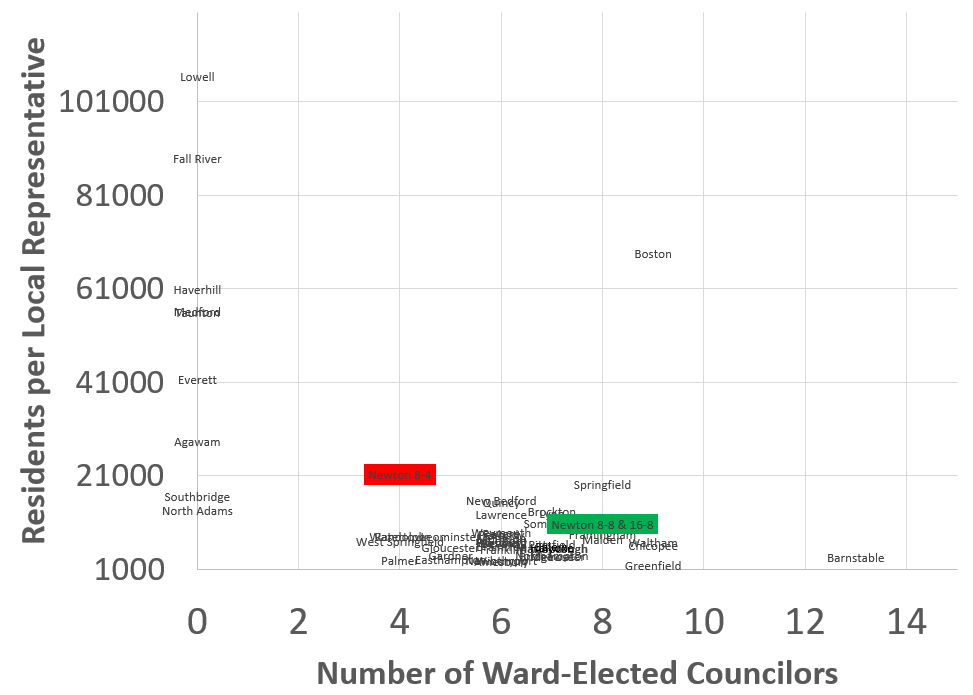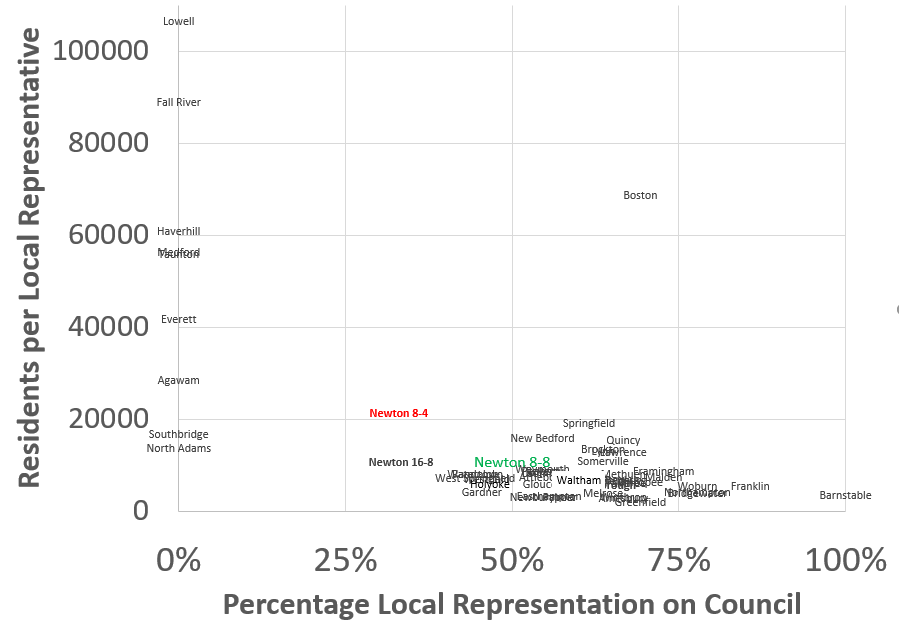Following the defeat of the charter commission’s proposal on 11/7, some YES supporters have suggested that the city council propose a home rule petition to replace our 8 ward-elected councilors with 4 “district-elected” councilors represent 4 quarter sections of the city, rather than eliminate the 2nd at-large seat currently present in each ward.
Voters rejected the charter in larger numbers than voted for the mayor and all but one candidate for office. In several precincts over 97% of voters cast a ballot on the question. This was a well informed electorate. The message was clear — RETAIN LOCAL REPRESENTATION.
The majority of the city council now seeks to submit an 8-8 home rule petition that retains ward representation and reduces council size. The proposal has the following benefits:
- Reduces council size from 24 to 16 and ballot length from 17 to 9 race
- Maintains accountable and accessible ward-elected councilors and seats
- Maintains geographical balance with 2 resident councilors in each ward.
- Ensures head to head match ups and reduces uncontested elections
- Minimizes unintended consequences and compatible with committees
- Increases the voice of local representation on the city council.
The 8+4 proposal is a non-starter because it eliminates the thing that Newton residents just voted to keep — locally-elected ward councilors. Furthermore 8-4 is an extreme outlier proposal on two fronts:
First, 8+4 would yield the 3rd highest resident/district-councilor ratio in the state behind Worcester and Boston. Most cities have 6 or more ward-elected councilors, each representing less than 6700 residents each. You can’t cut Newton into four 22,000 resident districts and provide the village-level representation it enjoys today.
Second, even if you consider the four 22,000 resident districts “local”, the 8-4 proposal would leave Newton’s with the least proportion of local voice of any city (Figure 2). Over two-thirds of cities have majority ward-elected councils. Of the 46 MA cities with ward-elected representation, Newton ranks dead last with its 2:1 ratio of at-large to ward-elected representatives. The 8-8 proposal would only raise it to 39th on the list.
Third, 4 district-elected representatives is very low number to have for a community of any size and particularly for a city the size of Newton. For a city of Newton’s size, four district-elected councilors do not constitute local representation. No cities in Mass. have fewer than FIVE ward-elected councilors. (Easthampton, Gardner, Gloucester, Leominster and Worcester)
Combining the pictures above, you can see how unusual the 8+4DD
Boston and Worcester are excluded from above due to their size and the 10 at-large cities using that rejected model were excluded as well. If you include them, you get the plots below.
Newton residents have now voted for retaining ward-elected representation in the form of 8 ward-elected councilors on our city council. That should be respected. The city council should allow the 8-8 Home Rule to advance to the mayor, the state, and to the voters to vote up or down in November 2019 and not further entertain the 8-4 proposal.








The voters have spoken already. We favor local representation. Why is that right being challenged yet again?
The voters have spoken already. We favor local representation. Why is that right being challenged yet again?